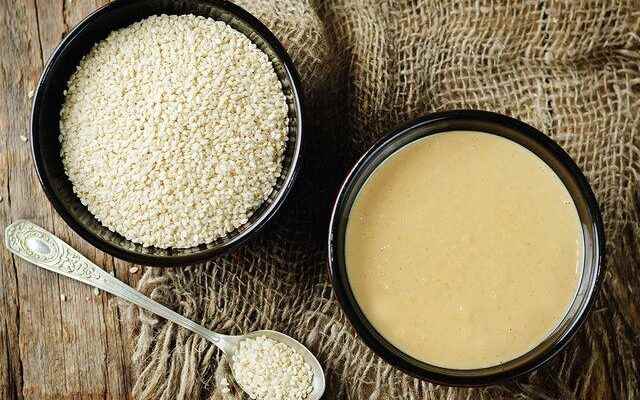Tahini is a Middle Eastern condiment obtained by peeling and roasting sesame seeds. Tahini, which is used in different ways, is frequently preferred in Turkish cuisine. Tahini, which has high nutritional value, has many unknown benefits. It has been explained that a tablespoon of tahini, which is eaten daily without excessive use, is good for diseases. Here are the powerful nutritional values in a tablespoon of tahini…
WHAT’S IN A TABLESPOON OF TAHINI?
• Calories: 90 calories
• Protein: 3 grams
• Fat: 8 grams
• Carbs: 3 grams
• Fiber: 1 gram
• Thiamine: 13% of Daily Needed
• Vitamin B6: 11% of the Daily Need
• Phosphorus: 11% of Daily Needed
• Manganese: 11% of Daily Needed
WHAT ARE THE BENEFITS OF TAHINI?
TAHINI PLAYS AN IMPORTANT ROLE IN BONE HEALTH
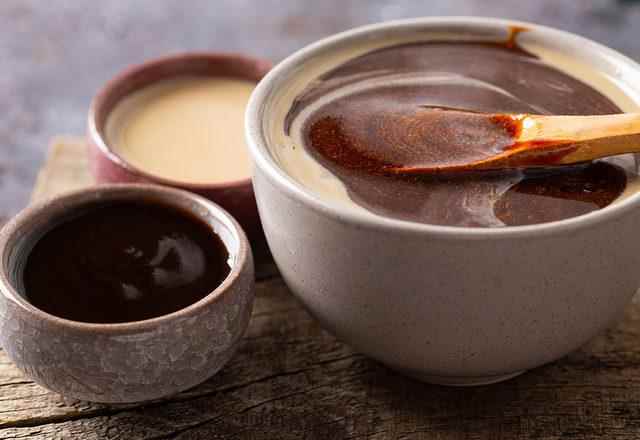
Tahini is a great source of phosphorus and manganese, both of which play vital roles in bone health. It is also extremely rich in thiamine (vitamin B1) and vitamin B6, which are important for energy production. Additionally, about 50% of the fat in tahini comes from monounsaturated fatty acids. These oils, which have anti-inflammatory properties, help reduce the risk of chronic diseases.
HIGHLY RICH AS AN ANTIOXIDANT
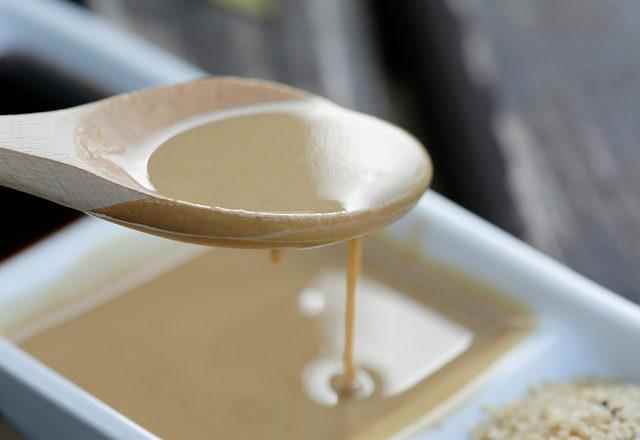
Tahini contains antioxidants called lignans, which can help prevent free radical damage in your body and reduce your risk of disease. Free radicals are unstable compounds. When present at high levels in your body, they can damage tissues and contribute to the development of diseases such as type 2 diabetes, heart disease and some cancers. Tahini is particularly high in lignan sesamin, a compound that has shown promising antioxidant potential in some test-tube and animal studies. For example, it may reduce your risk of cancer and protect your liver from free radical damage.
REDUCES THE RISK OF DISEASE
Consuming sesame seeds may reduce the risk of certain conditions, such as type 2 diabetes and heart disease. Doing so can lower your heart disease risk factors, including high cholesterol and triglyceride levels. Sesame seeds may reduce risk factors for heart disease and the risk of developing type 2 diabetes.
USED AS A REMEDY FOR FOOT WOUNDS
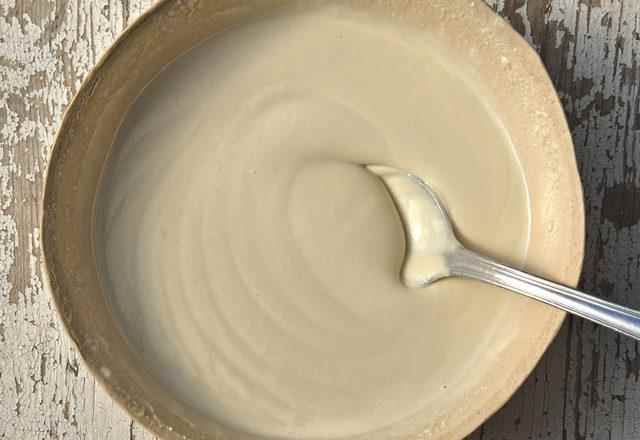
Tahini and sesame seeds may have antibacterial properties due to the powerful antioxidants they contain. In fact, in some Central European and Middle Eastern countries, sesame oil is used as a home remedy for diabetes-related foot ulcers. In a study on the antibacterial capacity of sesame seed extract, researchers found that it was effective against 77% of the drug-resistant bacteria samples tested.
HEALS WOUNDS AND INFLAMMATIONS FASTER
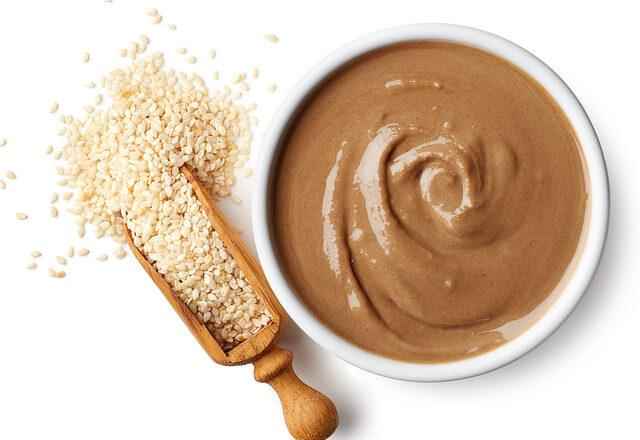
Some compounds in tahini are highly anti-inflammatory. While short-term inflammation is a healthy and normal response to injury, chronic inflammation can take a toll on your health. Animal studies have found that sesamin and other sesame seed antioxidants can relieve inflammation and pain associated with injury, lung disease, and rheumatoid arthritis. Sesamin has also been studied in animals as a potential treatment for asthma, a condition characterized by airway inflammation. Tahini contains these powerful antioxidants, but much smaller.
in quantities. Additionally, more research is needed to fully understand how sesame seeds affect inflammation in humans.
REDUCES THE RISK OF TAKING BRAIN DISEASES
Tahini contains compounds that may improve brain health and reduce your risk of neurodegenerative diseases such as dementia. Sesame seed antioxidants can cross the blood-brain barrier, meaning they can leave your bloodstream and directly affect your brain and central nervous system.
